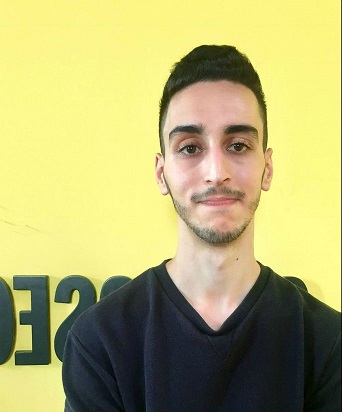Reprieve (2017) - Rabah Kherbane
Bonavero Institute Fellow at Reprieve's London office

Dates: July - September 2017
I feel very fortunate to have spent July to September 2017 as an Oxford Bonavero Institute Fellow at the international human rights NGO, Reprieve. In this short case study, I will outline my experience, particularly how it added value to my studies, a main lesson learnt, and a significant benefit gained.
I was part of Reprieve’s Assassinations Team, which works on abuses in counter-terrorism, with a focus on challenging the use and legality of drone strikes outside of armed conflict. I undertook and assisted with a range of work, including investigation and litigation on drone strikes and secret prisons in Yemen; advocacy aimed at encouraging the development of transparency and accountability structures for the use of drones; research, analysis and application of international human rights law to the use of armed drones; and other tasks, such as attending hearings, client conferences, factual analysis, and building cases as well as listing challenges.
This experience added value to my studies in that I was able to apply my academic skills and knowledge, which were at times quite abstract, to practical effect within Reprieve’s complex and multi-faceted investigation, litigation, and advocacy work. On the BCL I had studied human rights law, including the right to life and its application to the use of armed drones, in significant detail through a range of modules. At Reprieve, I drew on this to help with real cases. For example, Reprieve recently pursued an appeal to the United States Supreme Court, where it raised – amongst other issues – the right to life, alleging that a certain drone strike was unlawful and the victims’ families should therefore be offered redress. I assisted in relation to this. I also assisted with Reprieve’s ongoing litigation in Germany, which raises Germany’s positive obligations to protect the right to life, in order to challenge the role of Ramstein Airbase in US drone strikes.
Accountability and investigative obligations also arise under the right to life in international human rights law, and apply to the use of drones, especially in the context of targeted killings. I analysed and summarised reports and prepared legal research memos on the application of these obligations, to be used in Reprieve’s internal and external work. I also contributed to Reprieve’s advocacy work and litigation aimed at encouraging States, from the US to European States, to implement such accountability mechanisms where drones – or complicit acts – are concerned. I used my academic insight in comparative human rights methodology, gained on the BCL, to suggest and outline an amicus brief utilising such analysis for Reprieve’s appeal to the US Supreme Court. Being able to apply my academic skills to real cases – which in turn go towards helping real people – added yet another incredibly rewarding and intellectually stimulating dimension to my studies.
A significant lesson I was able to fully appreciate at Reprieve was that the application of human rights in practice means the law should be viewed in its proper context, and could only be one tool in efforts to achieve positive social change. In this regard, Reprieve is excellent at using public advocacy in tandem with the law in order to champion human rights. For example, off the back of their recent application for leave to the US Supreme Court, Reprieve’s public advocacy drew attention to a concurring opinion at the federal Court of Appeals stage criticising the lack of oversight in the US’s use of drone strikes. This gained coverage in international media and raised awareness of the policy challenges which underpin targeted killings in states outside of armed conflict.
A major personal benefit I gained throughout this experience – as cliché as this may sound – was hope. In a world where President Trump has significantly increased the use of armed drones, Reprieve continue to fight for accountability and justice for victims. Amidst the cynicism, there are small victories. Policies are changed. Public figures are won over. Investigations bear fruit. Reports are published. Campaigns gain traction. Judgements cast doubt on existing policies. Lives are saved. This drives me to work in the field, knowing that realistic change is not only possible, but happens incrementally – and at times, instantaneously – on a day-to-day basis, thanks to the courageous efforts of public interest groups like Reprieve.
I wholeheartedly recommend this fellowship to anyone interested in working in an environment where human rights law is applied to practical effect, to uphold the rule of law and help the most vulnerable in society.
RABAH KHERBANE
